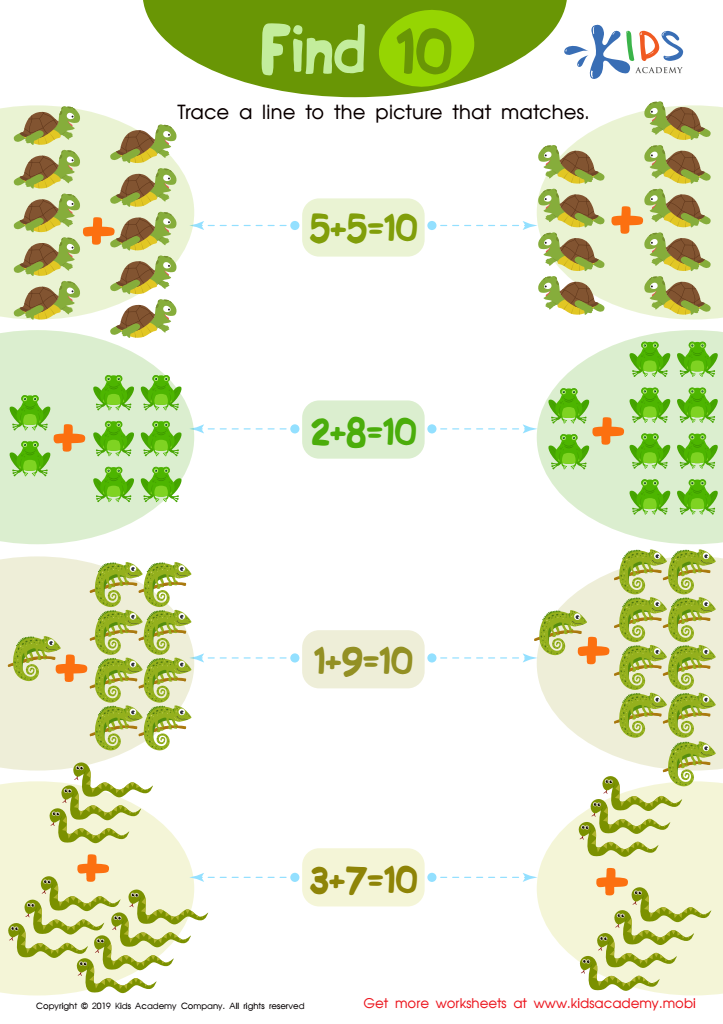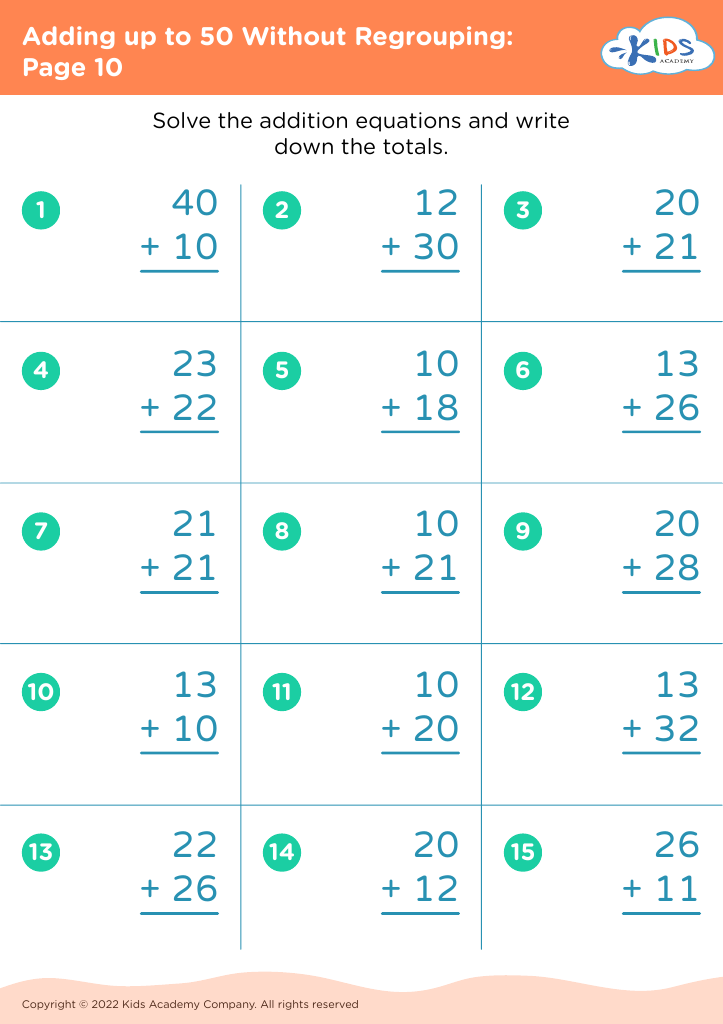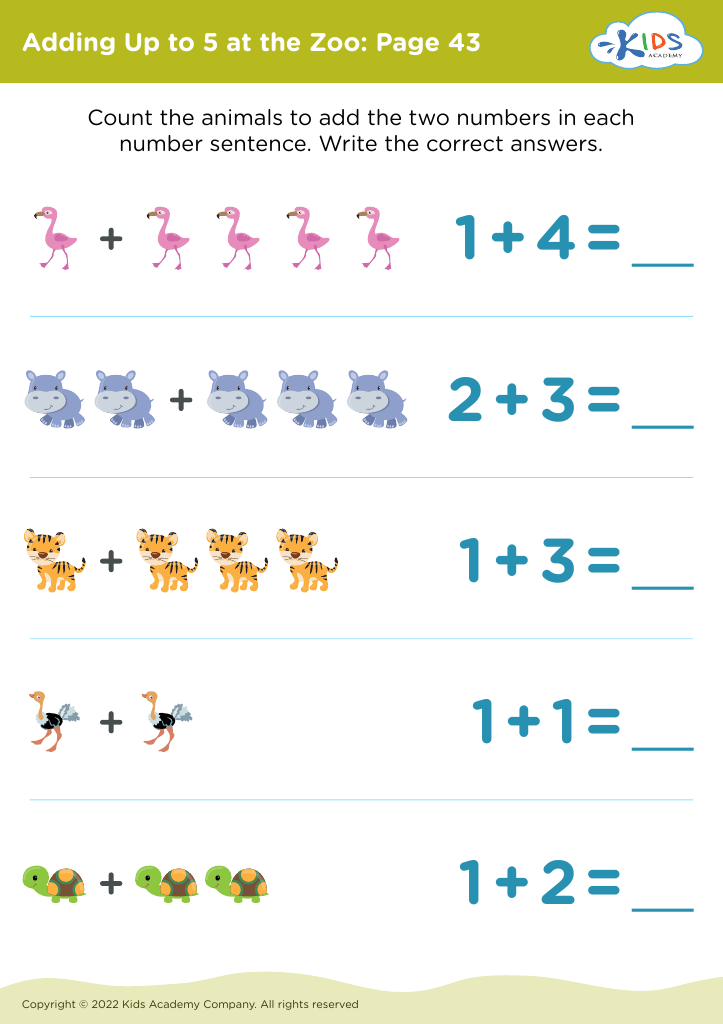Mathematical thinking Addition Worksheets for Ages 5-9
4 filtered results
-
From - To
Enhance your child's mathematical thinking with our Addition Worksheets for ages 5-9. These engaging worksheets are designed to develop critical thinking and problem-solving skills through a variety of addition exercises. Perfect for young learners, our worksheets focus on building a solid foundation in basic math while making learning enjoyable. Each sheet incorporates fun themes and visuals to keep kids engaged and motivated. Whether used in the classroom or at home, these resources are ideal for supplementing math instruction and boosting confidence in young mathematicians. Equip your child with essential math skills through our expertly crafted addition worksheets.


Find 10 Worksheet
Mathematical thinking, particularly in addition, is a fundamental skill that lays the groundwork for children's future academic success and daily life problem-solving abilities. For children ages 5-9, mastering addition is essential as it enhances their numerical fluency and confidence in handling numbers. By focusing on addition, parents and teachers help students develop logical reasoning skills and cognitive abilities, which are critical for understanding more complex math concepts later on.
Incorporating addition early helps children recognize patterns, improve memory, and foster critical thinking—a skill set beneficial far beyond mathematics. These early experiences with math can influence attitudes toward the subject, cultivating a positive or negative mindset. Positive early interactions with math can boost a child's self-esteem and encourage a growth mindset, making them more willing to tackle challenging problems in the future.
Furthermore, addition is not just about solitary numerical calculations; it's integrated into everyday life, from counting toys to sharing snacks. Through playful and practical experiences, children grasp the relevance of math, making learning meaningful and engaging. Parents and teachers play a pivotal role in creating a supportive and stimulating environment for practicing addition, ensuring that children develop a strong, lasting foundation in mathematics. This foundational competence empowers children to transition smoothly to more complex mathematical tasks and builds their critical thinking prowess applicable in various life scenarios.
 Assign to My Students
Assign to My Students



















